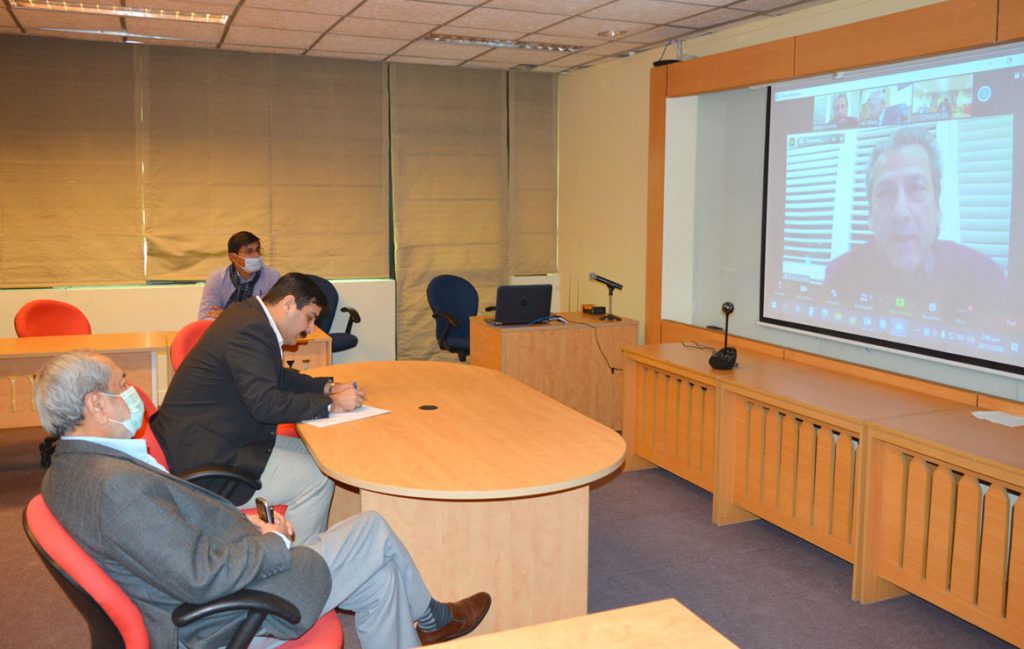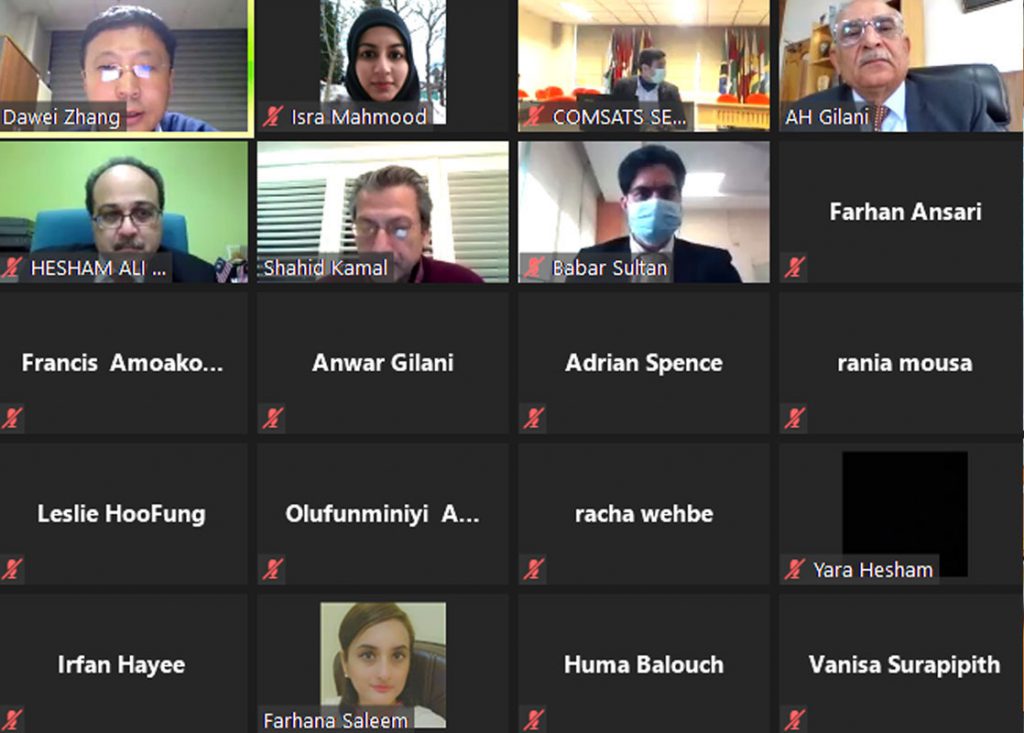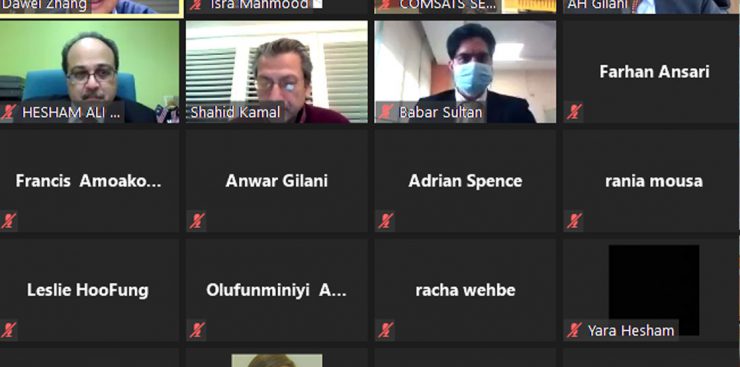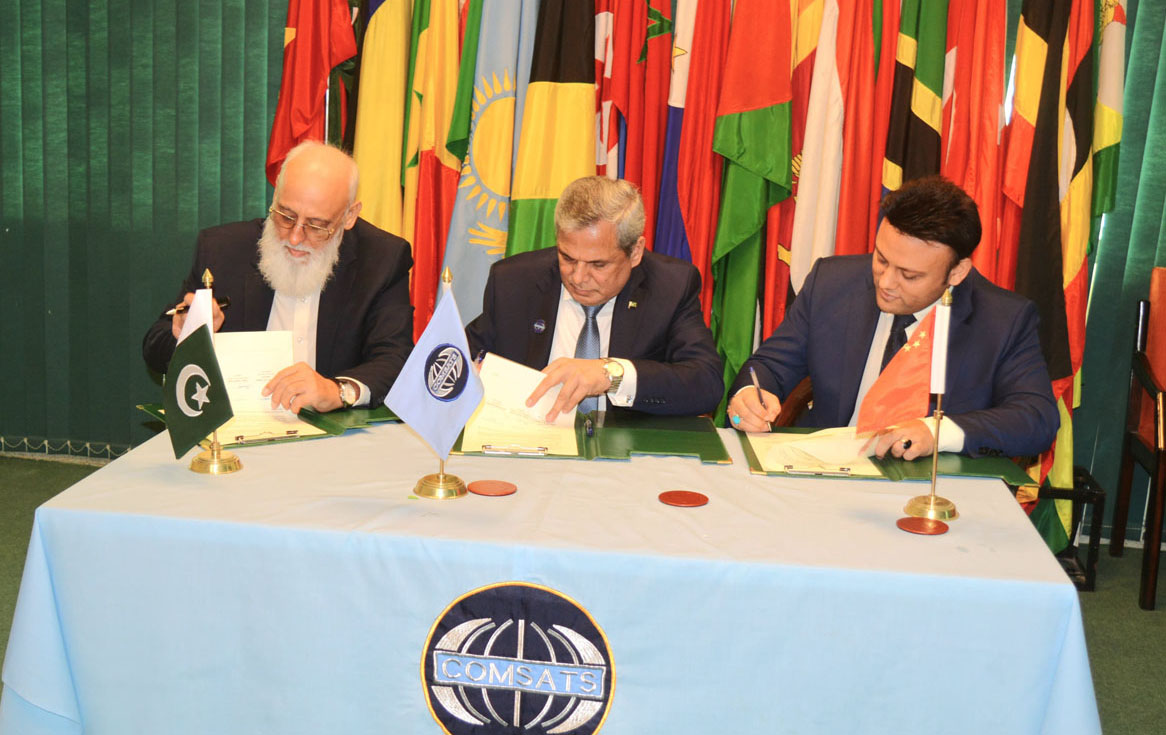COMSATS organized a webinar within the framework of Sustainable Development Goal 2 (Zero Hunger), on 30th November 2020. The webinar was co-hosted by COMSATS Centre for Climate and Sustainability (CCCS) and the Uganda National Council for Science and Technology (UNCST), Uganda.
The Webinar was moderated by Prof. Dr. Anwar-ul-Hassan Gilani, Vice Chan cellor of the University of Haripur, Pakistan. Prof. Dawei Zhang from Tianjin Institute of Industrial Biotechnology (TIB), China; Prof. Dr. Hesham Ali El Enshasy, Universiti Teknologi Malaysia (UMT), Malaysia; Dr. Francis Osei Amoaka-Andoh, Crop Research Institute, Council for Scientific and Industrial Research (CSIR), Ghana; Ms. Leslie Hoo Fung, International Centre Environment and Nuclear Sciences (ICENS), Jamaica; Prof. Dr. Azhar Rashid, University of Haripur, Pakistan; Dr. Ilmi Hewajulige, Industrial Technology Institute (ITI), Sri Lanka; and Dr. Ephraim Nuwamanya, Makerere University, Uganda, participated as panelists of the webinar.
cellor of the University of Haripur, Pakistan. Prof. Dawei Zhang from Tianjin Institute of Industrial Biotechnology (TIB), China; Prof. Dr. Hesham Ali El Enshasy, Universiti Teknologi Malaysia (UMT), Malaysia; Dr. Francis Osei Amoaka-Andoh, Crop Research Institute, Council for Scientific and Industrial Research (CSIR), Ghana; Ms. Leslie Hoo Fung, International Centre Environment and Nuclear Sciences (ICENS), Jamaica; Prof. Dr. Azhar Rashid, University of Haripur, Pakistan; Dr. Ilmi Hewajulige, Industrial Technology Institute (ITI), Sri Lanka; and Dr. Ephraim Nuwamanya, Makerere University, Uganda, participated as panelists of the webinar.
In his presentation, Prof. Zhang delineated on synthesis of cell factories that help convert high-value chemicals (CO2, cellulose and glucose) to natural products (sugars, protein, amino acids, and vitamins) at industrial scale. He was of the view that inefficient techniques, lack of storage, improper transportation, market inefficiency and buying more than is needed are major contributors to food waste and loss.
Discussing global agriculture production, Dr. Francis noted that most of the developing countries lack modern technologies for food production which is one of the factors hindering progress towards achieving food security. He suggested developing high yield producing crop species to ensure availability of sufficient food to masses.
Ms. Fung noted that COVID-19 has disrupted the global food supply chain creating food sho rtages in various parts of the globe. She was of the view that indigenous food production should be encouraged to decrease reliance on imports and to achieve self-sufficiency in food production.
rtages in various parts of the globe. She was of the view that indigenous food production should be encouraged to decrease reliance on imports and to achieve self-sufficiency in food production.
In his presentation, Dr. Hesham enumerated the four levels of food security as individual, community, national and global. He stated that there is risk of food loss at every stage of food production cycle, i.e. pre-harvesting, harvesting, transportation, storage, processing, market, and consumption. To reduce food waste, he suggested reduction at source, conversion of food item into other useful materials, and reuse into non-food utilities.
Prof. Dr. Azhar Rasheed discussed the environmental impacts of food waste stating that developing countries contribute 44% to food loss and waste. He mentioned that Pakistan wastes 36 million tons of food annually which is equal to food produced from 30% of the agriculture land. He also noted that food waste is one of the greatest contributors to global carbon emissions.
Dr. Hewajulige stated that rapid urbanization, expansion of retail chains, change in lifestyles and diet patterns are all contributory factors to food waste and loss. He shared some of the good practices adopted by his Institute for reduction in food waste, including conversion of rice barn into oil, synthesis of vinegar from pineapple, extraction of pectin from pumpkin and tamarind seeds, and production of fish silage for piggery and poultry farms.
Dr. Ephraim from Uganda mentioned that 23% of population is facing food insecurity and undernourishment which is further exacerbated in the wake of COVID-19 and extreme climatic conditions.






